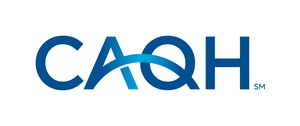
WASHINGTON, Dec. 7, 2017 /PRNewswire-USNewswire/ -- Today, CAQH CORE announced the launch of Phase IV Operating Rules Certification testing. Organizations can now verify that they are following these operating rules for the electronic exchange of administrative data. The Phase IV rules apply to prior authorizations, healthcare claims, employee premium payment, health plan enrollment and disenrollment, and other transactions.
Three organizations—Humana, Texas Medicaid and PokitDok—are the first to be awarded CORE Certification in the Phase IV rules. These beta testers represent commercial health plans, state Medicaid plans and vendors — key industry segments that depend on the transactions because of their interaction with healthcare providers and employee benefit managers.
"Standardizing business processes across the industry brings value to our customers and their members as well as our provider partners through better service and delivery of care, and is crucial to improving the healthcare system," said Sid Hebert, Director, Integrated Provider Solutions, Humana. "Humana is strongly committed to administrative simplification across the health care spectrum, and becoming Phase IV-certified demonstrates this commitment to our providers and business partners."
The Phase IV CAQH CORE Operating Rules address key infrastructure challenges related to the transactions, such as connectivity, processing times and system availability. The operating rules are also a critical step in reducing the time-consuming phone and fax communication in the prior authorization process conducted by providers to send information and obtain approvals for procedures. Currently, only 18 percent of prior authorization transactions are conducted fully electronic, according to the 2016 CAQH Index.
Providers can also immediately learn the status of a claim, including possible errors that could lead to a denial. The Medical Group Management Association estimates that the average cost for a medical practice to rework a denied claim is $25. The Phase IV rules ensure information is transmitted quickly, giving back time to providers for patient care.
"Being CORE-certified instills trust in our business partners," said Ted Tanner, Jr., co-founder and CTO, PokitDok. "They know when they work with us that they can expect seamless, real-time electronic transactions that they can easily integrate into new healthcare applications and services. We are proud to be the first healthcare technology company to achieve Phase IV certification and to be a driver of positive change in our industry."
The Phase IV CAQH CORE Operating Rules offer the first-ever requirements in healthcare for transactions conducted by employee health benefits plans. The rules call for health plans to electronically acknowledge receipt of information when employers process change-of-life events, including enrollment and disenrollment and premium payments. The requirements will alleviate delays or errors that can leave providers with uncollectable debt and employees with gaps in care.
CAQH CORE has developed three other phases of operating rules that cover additional healthcare transactions, which have been mandated by the U.S. Department of Health and Human Services for all HIPAA-covered entities. To date, CAQH CORE has awarded 330 certifications for the rules, all of which required verification through a similar testing process.
To learn more about CORE Certification and the CAQH CORE Operating Rules, visit www.caqhcore.org.
About CAQH CORE
More than 130 organizations participate in the CAQH Committee on Operating Rules for Information Exchange (CAQH CORE) and provide input on the development of operating rules. They represent healthcare providers, health plans, vendors, associations, government entities, and the organizations that set standards for healthcare and data exchange. The health plans in CAQH CORE cover more than 75 percent of all Americans with commercial insurance, Medicare or Medicaid. www.caqhcore.org.
SOURCE CAQH






Share this article